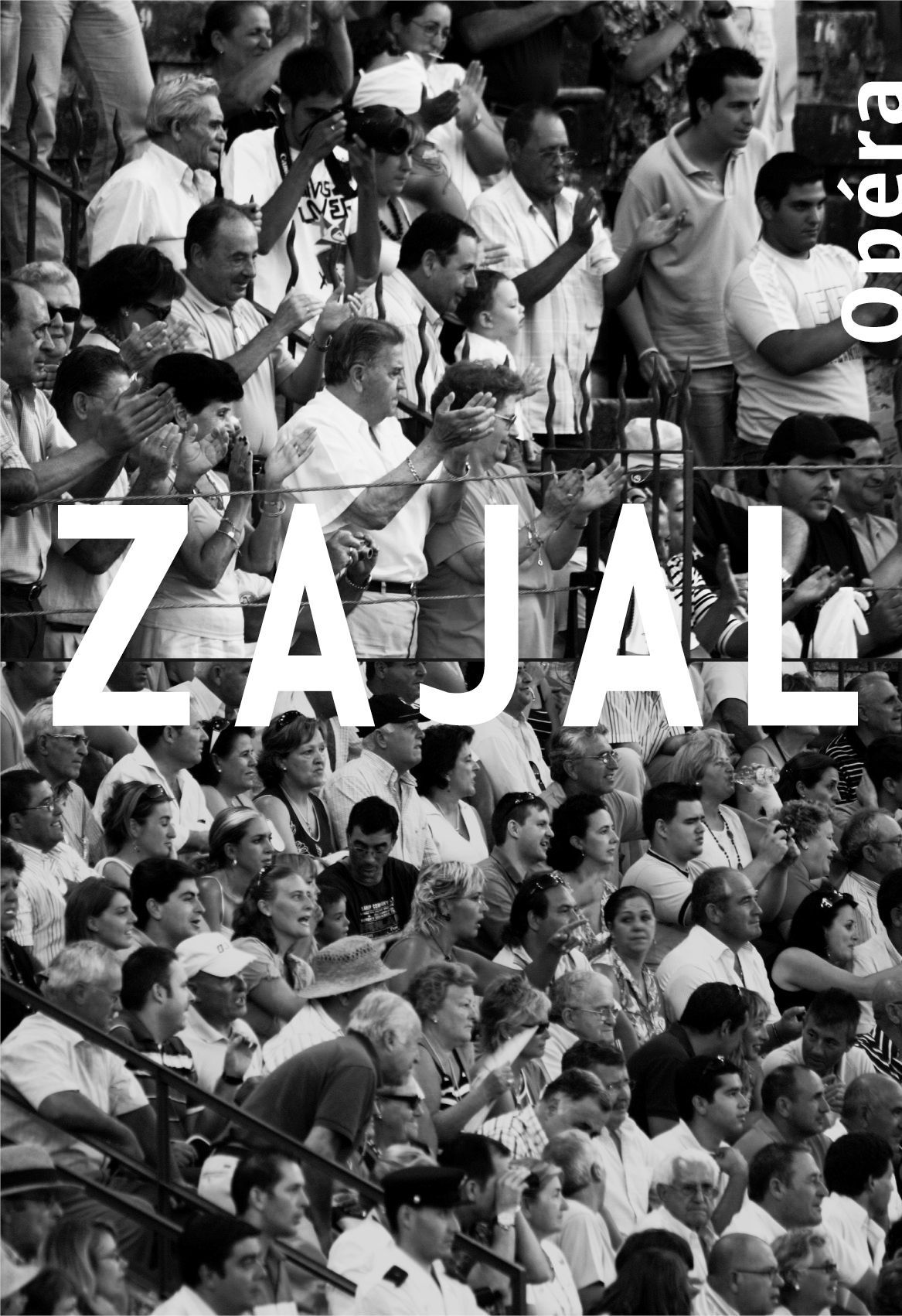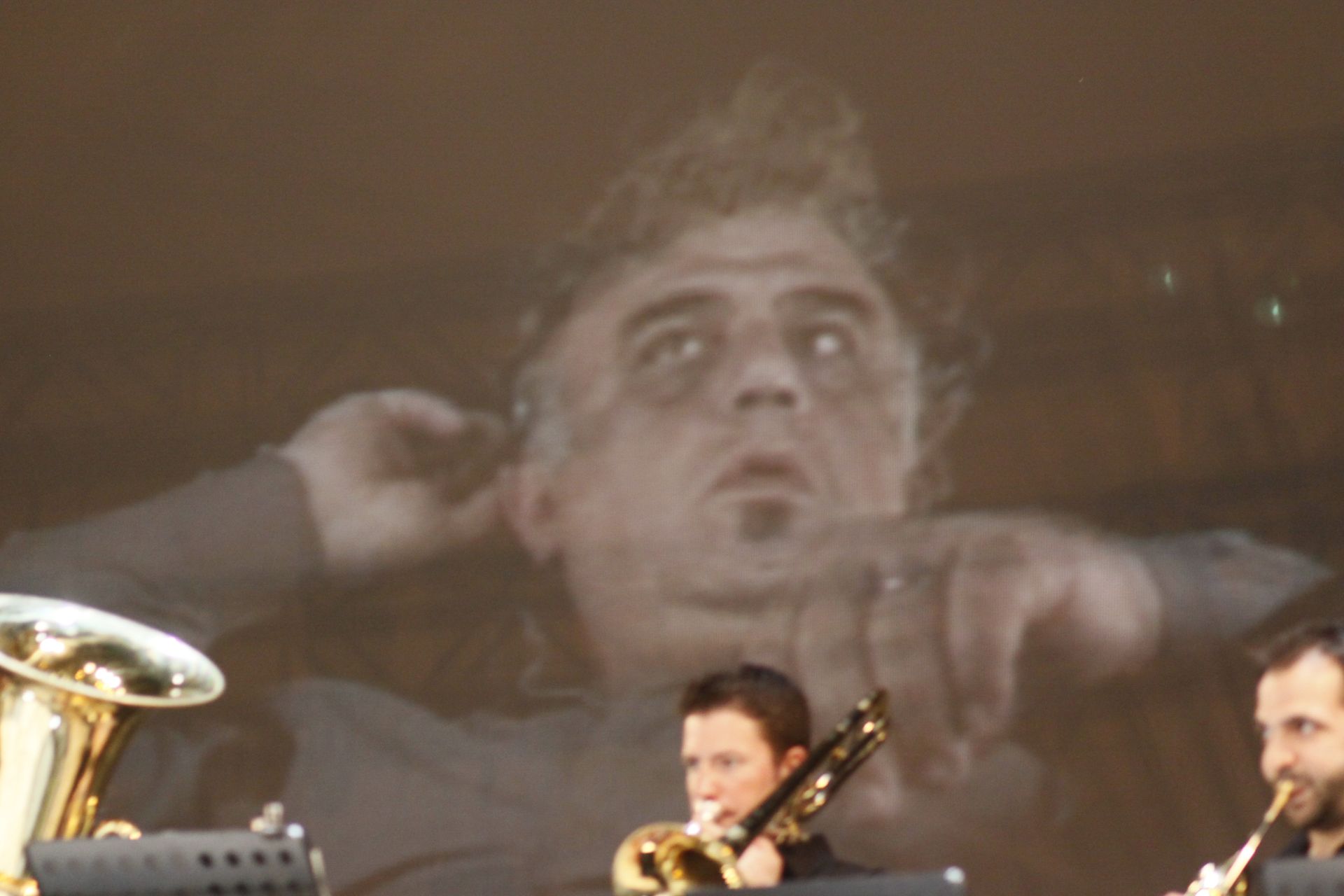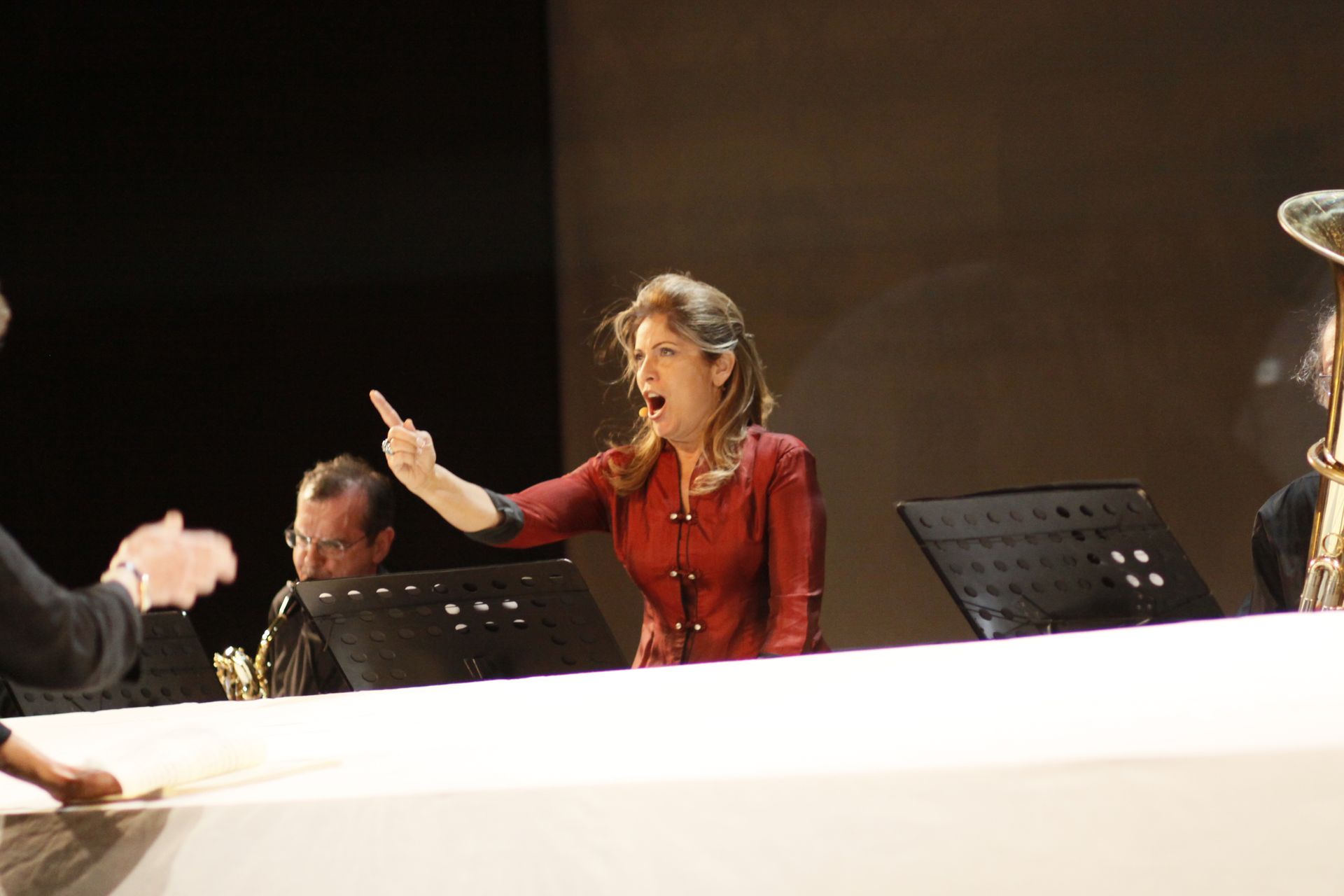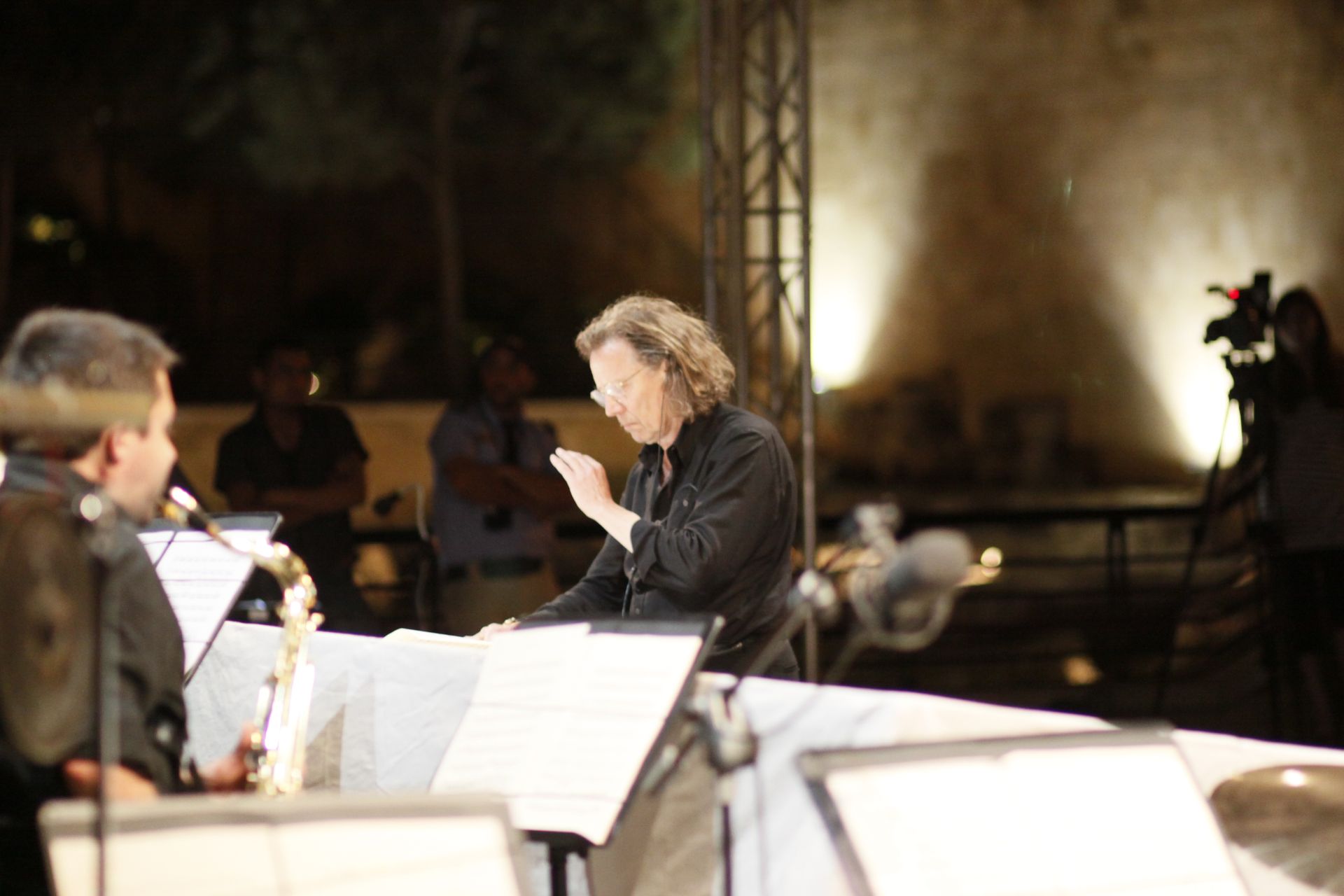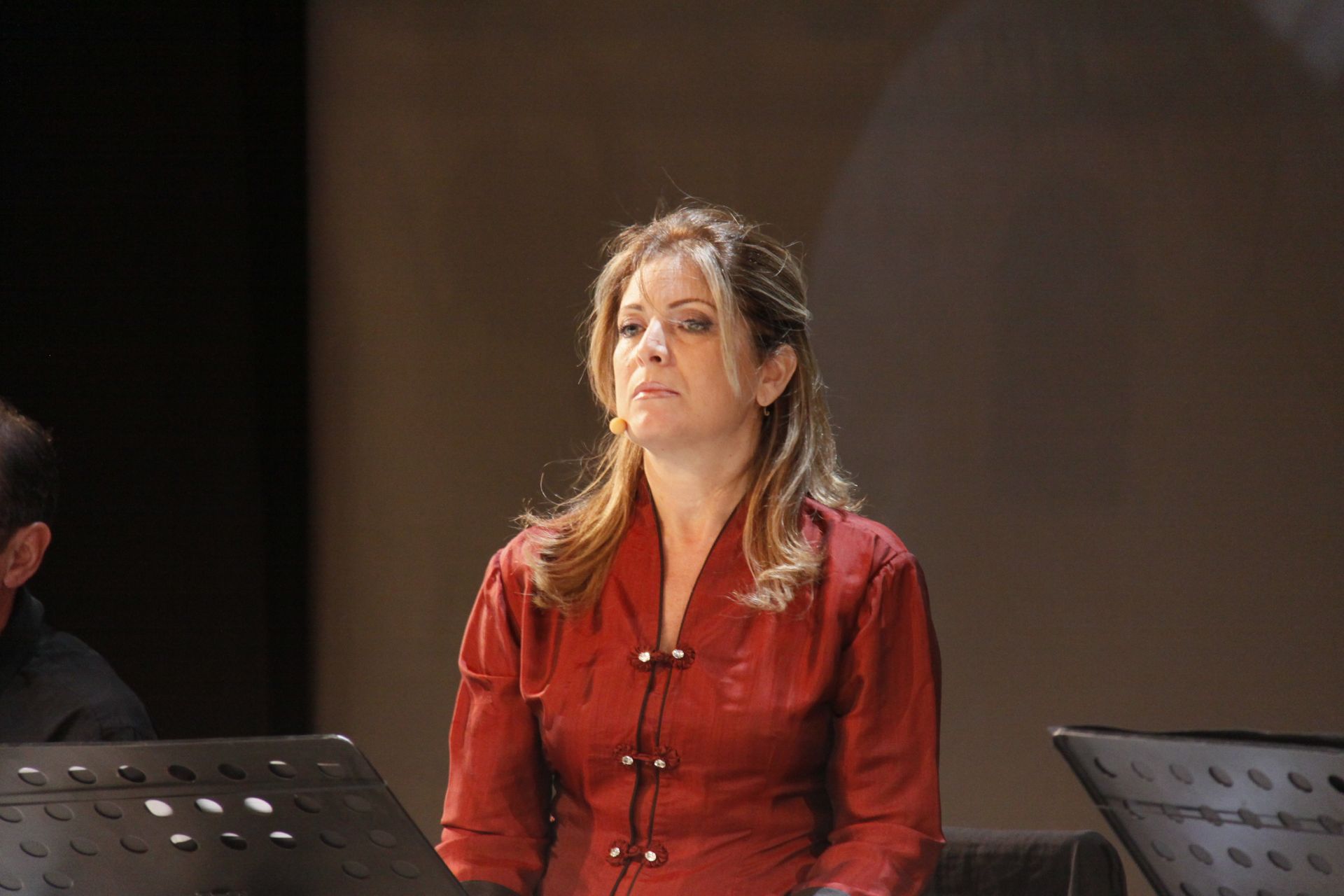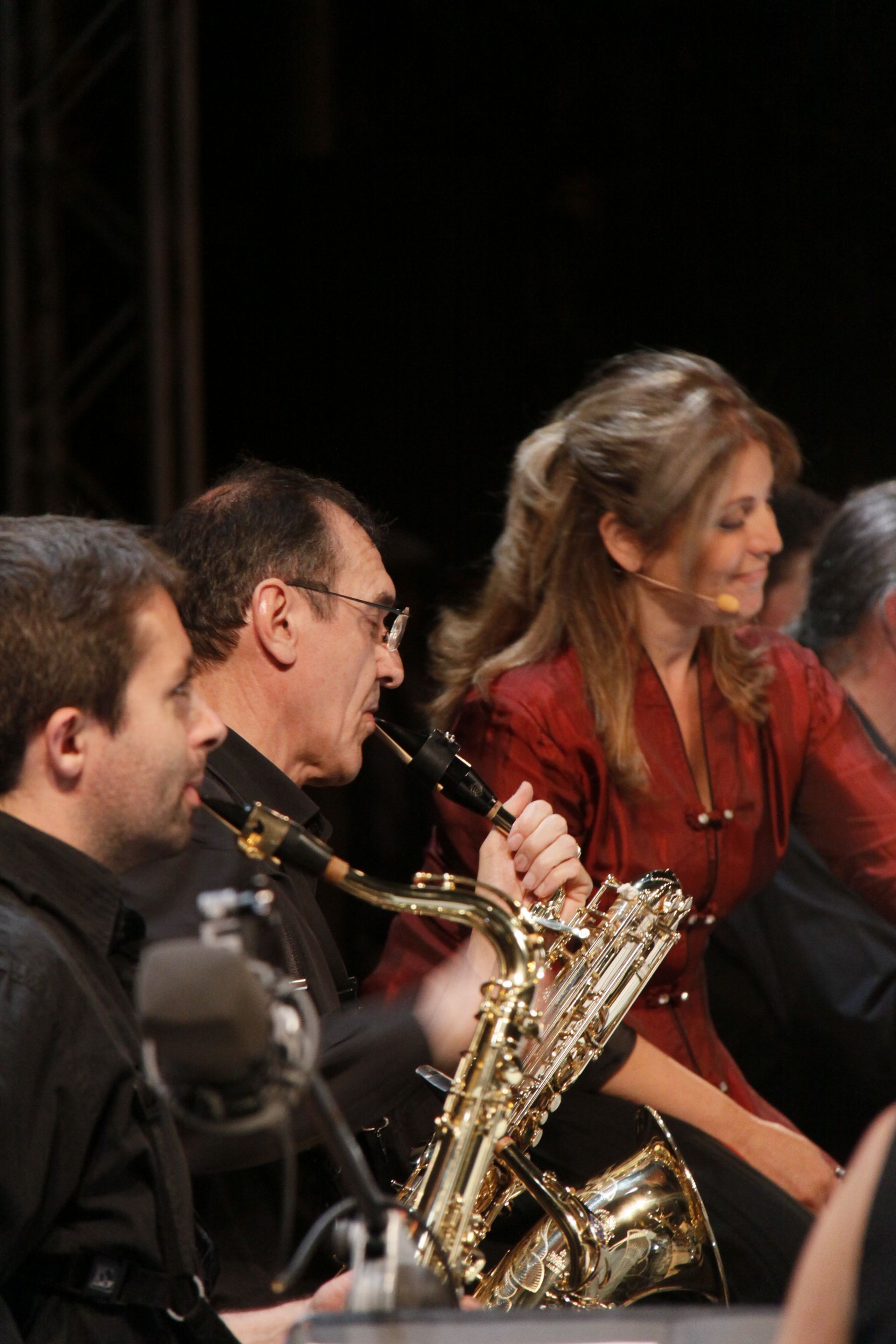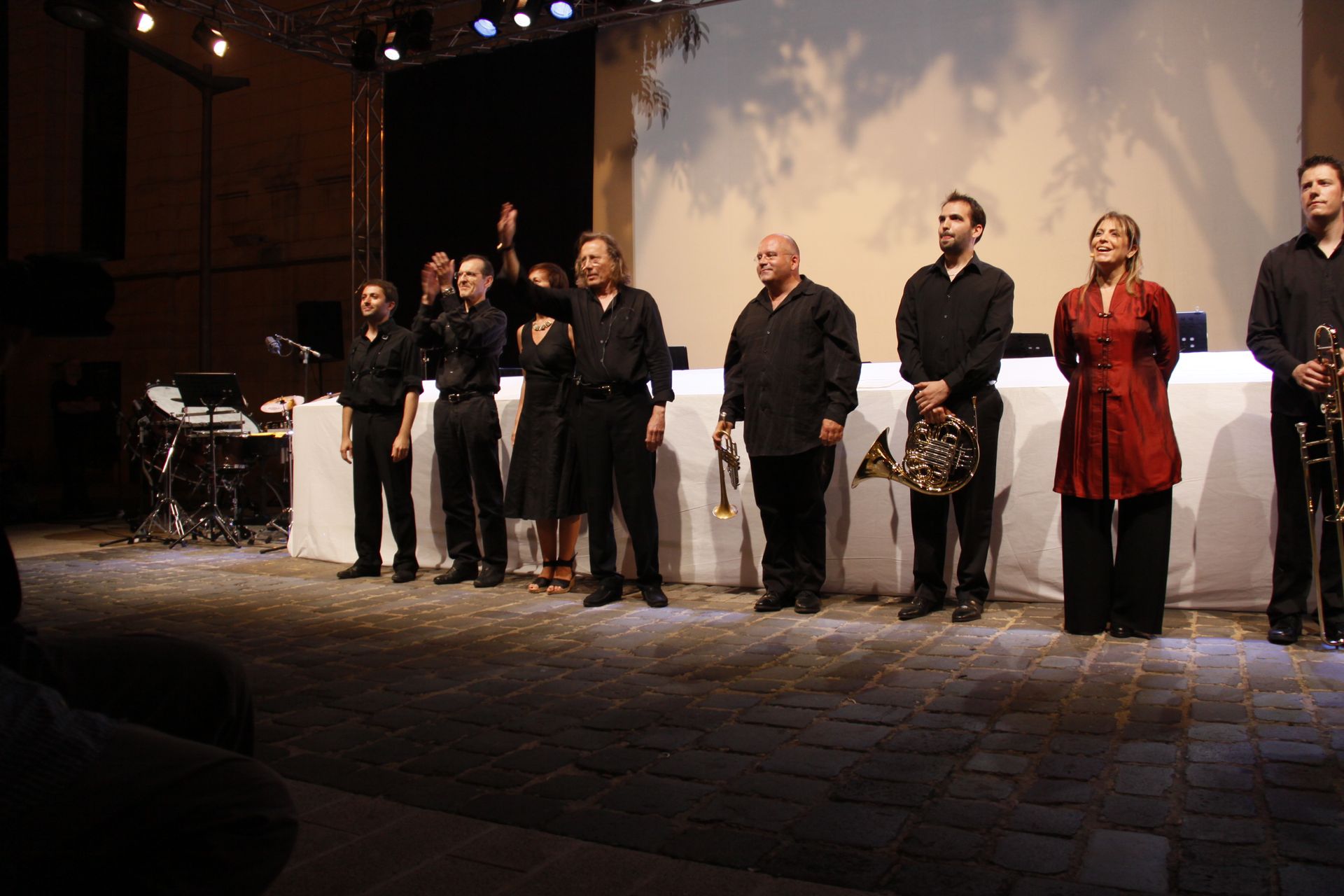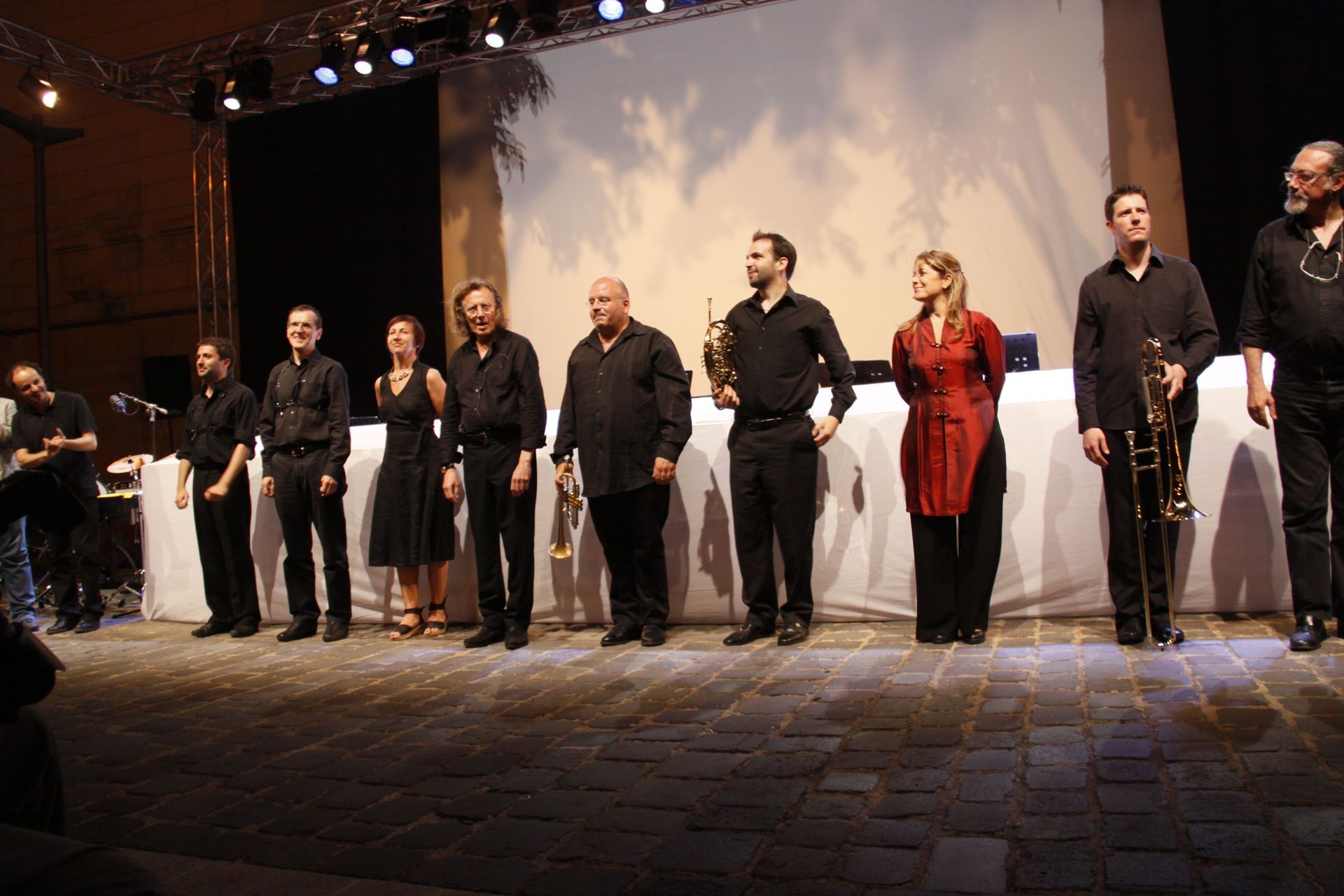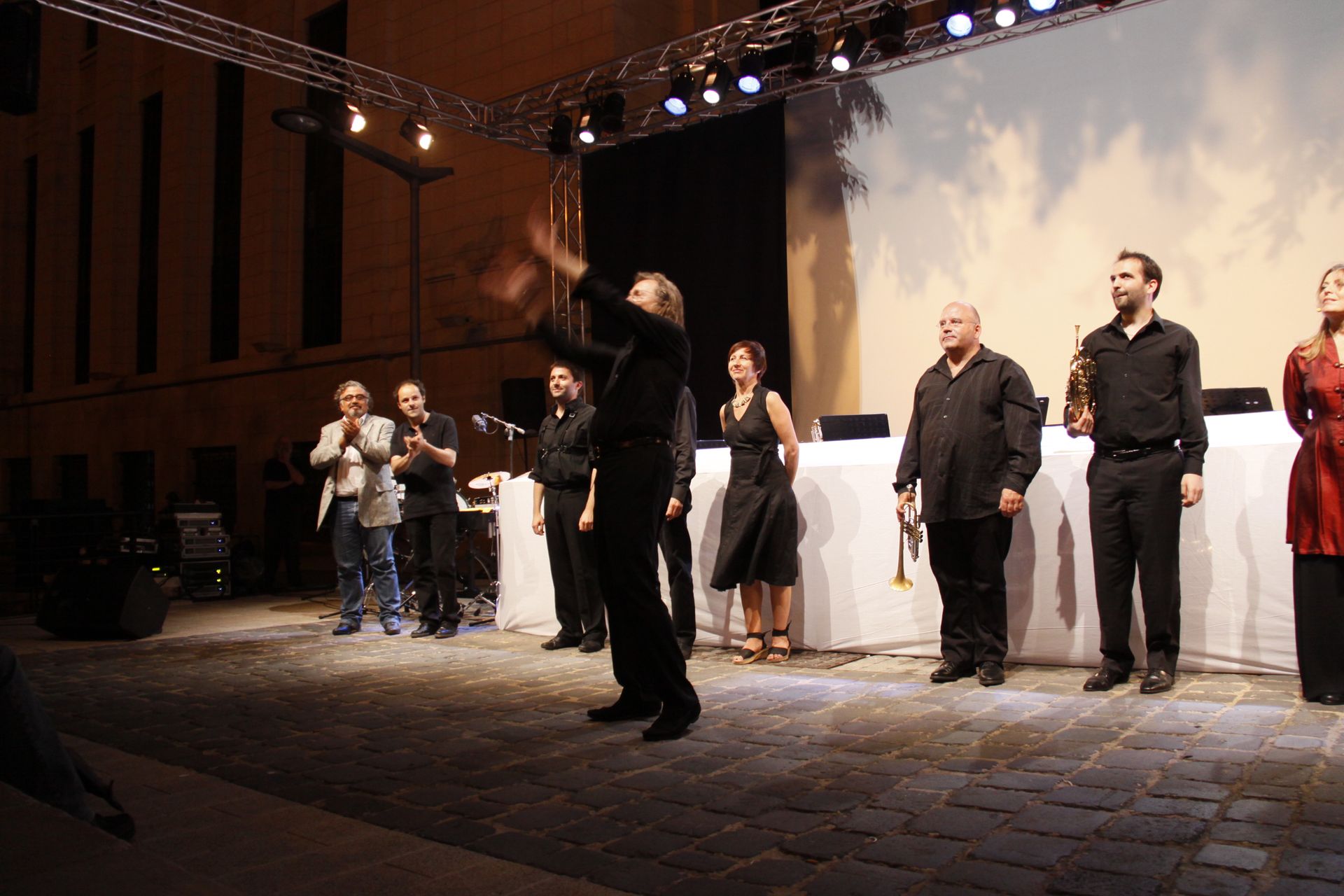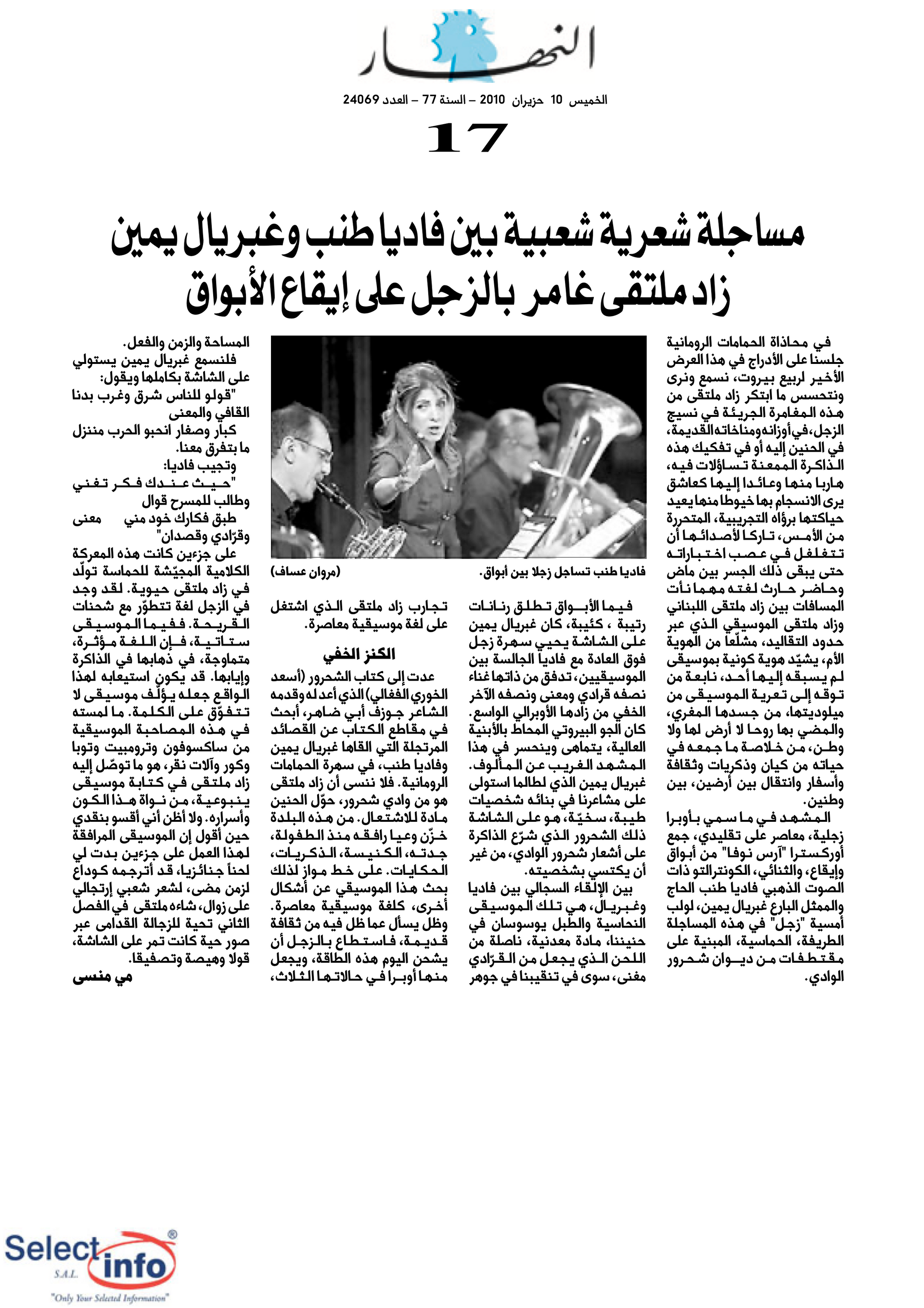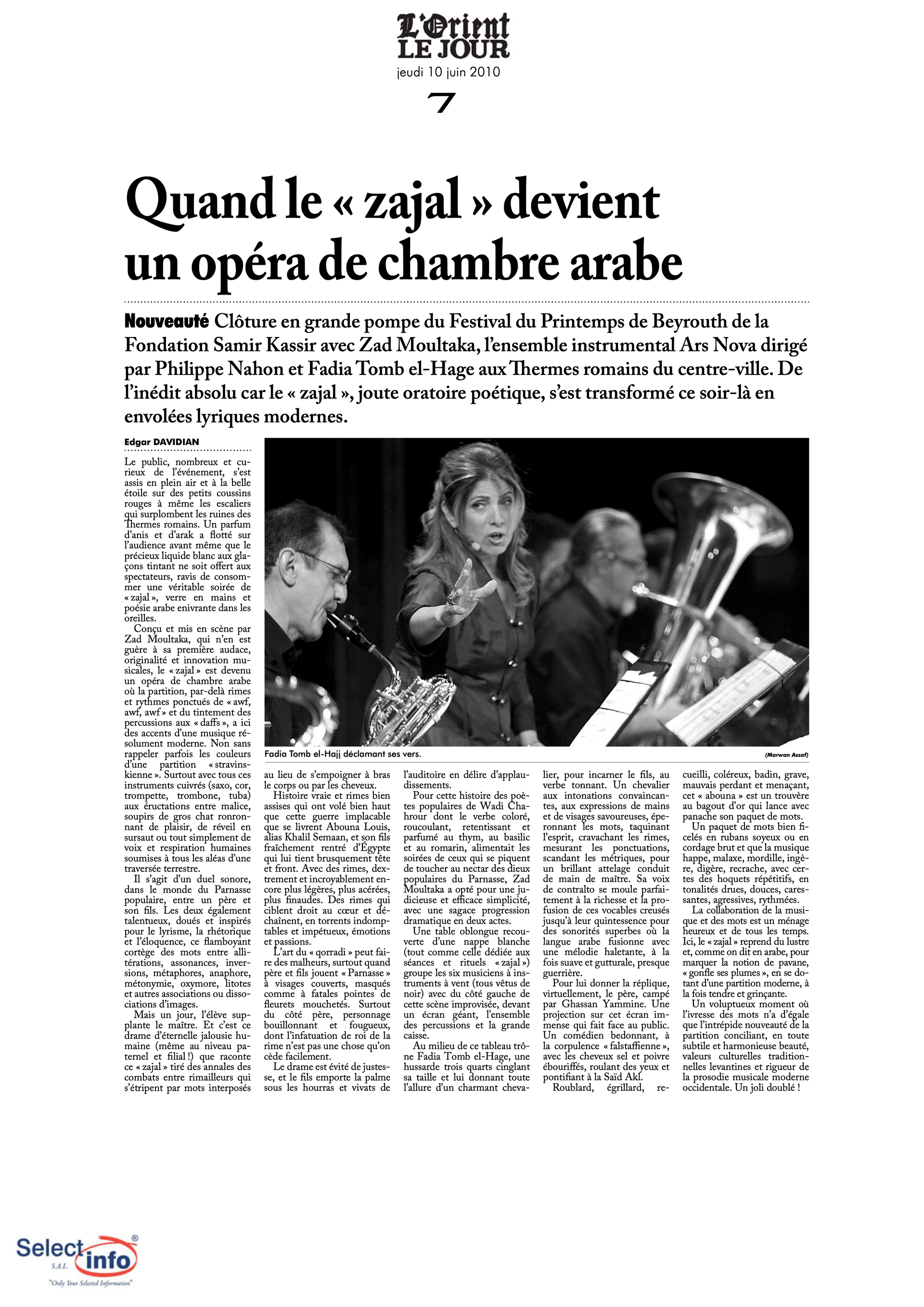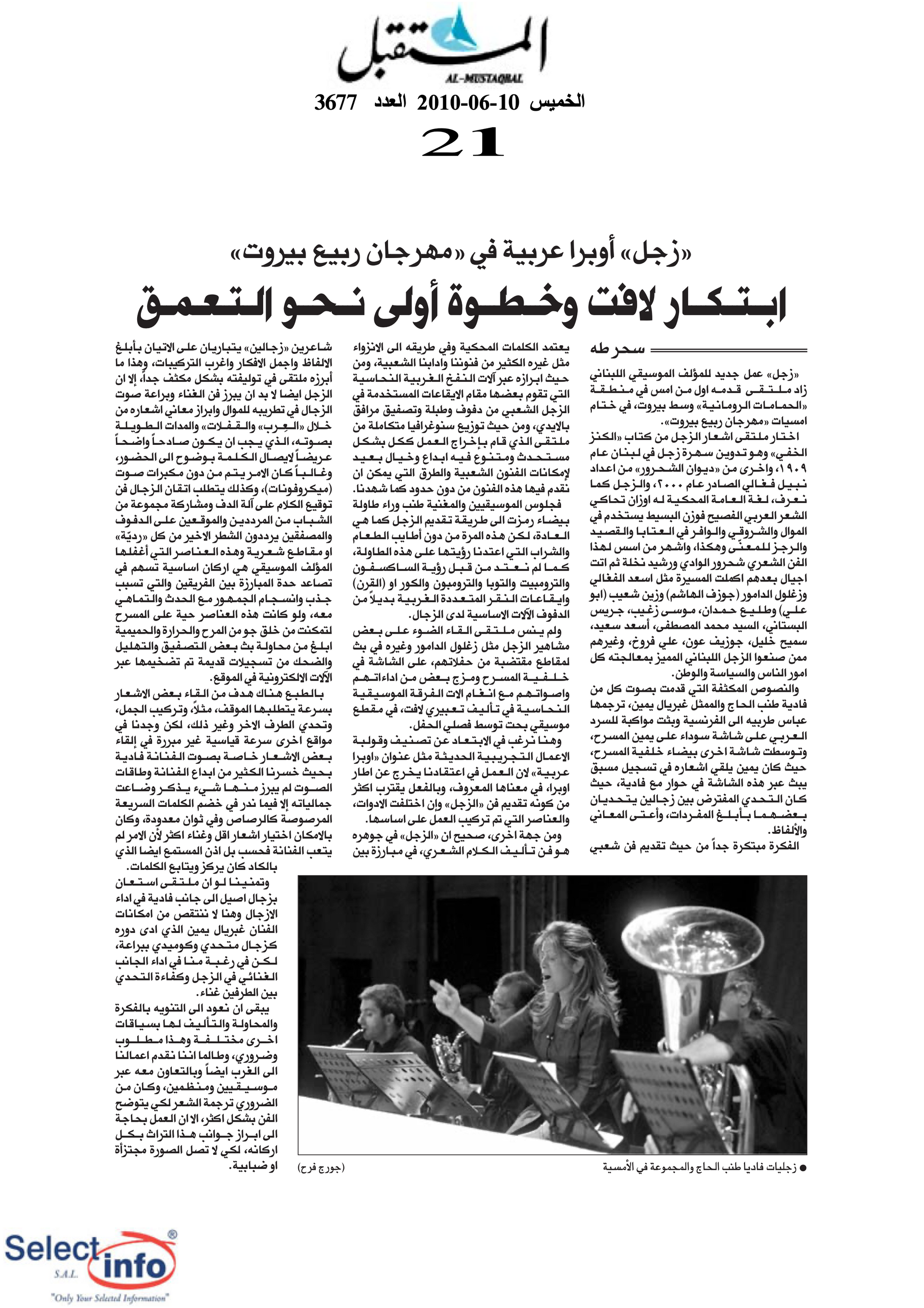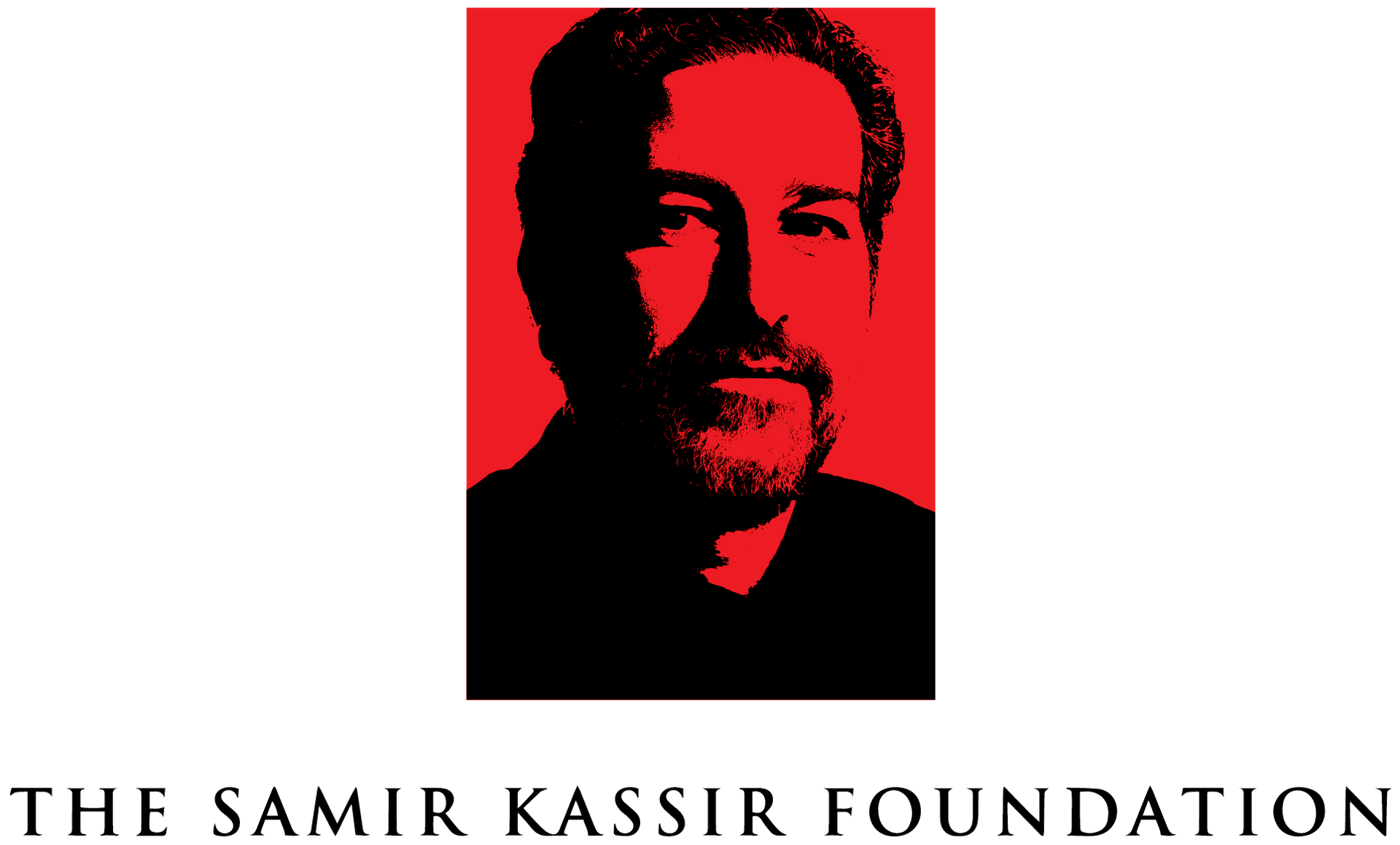CONCERT – ARABIC OPERA
ZAJAL
Zad Moultaka, Fadia Tomb El Hage, Ars Nova Orchestra
Lebanon, France
Inspired from Lebanese Zajal.
Tuesday 8 June 2010, 9:00 pm
The Roman Baths, Beirut Downtown
From Zajila, meaning to sing, hum, raise the voice, speak loudly, play, have fun, and Zajalon, which refers to popular dialectal poetry but also playing, noisy joy, clamor…
Musical Creation
- For a singer, an actor, a small harmonious set, three percussionnists, an electroacoustic device and an audio-visual projection device.
- Texts are sung and recited in Lebanese dialectical Arabic with French Subtitles.
- Based on an ancient poetic and musical tradition that is still alive in the Middle-East, which is that of verbal sparring called Zajal in Lebanon, the composer weaves an opera where languages are interlaced in a strange dramatic play.
Zad Moultaka, a music composer born in Lebanon in 1967, has been conducting a personal research on the language of music, integrating the essential facts of Western contemporary writing - structures, tendencies, families and signs - into the specific characters of Arabic music - monody, heterophony, modality, rhythms, vocality… His research involves many experimental fields …
The slow maturation of a form of very personal expression has given birth since 2003 to a series of works whose production intensified with time. From choir music to music ensembles, from chamber music to solo vocal music, from electroacoustics to sound installation and choreography…
Zad's complex personality pushes him to constantly make sense of the enigmas and resistance points that emerge in himself, questioning history, memory, the contemporary world, exploring limits, dreams, with this feeling of urgency that creators have.
Zad Moultaka started a musical collaboration with many artists throughout the world, namely with Ars Nova, Sillages, Accroche note, Musicatreize, the Netherland Radio Choir, the Amsterdam Schönberg ensemble, the Montreal New Modern Ensemble, the Strasbourg chamber choir…
Fadia Tomb el-Hage grew up in a family of musicians and painters. Since 1979, her interpretations of the works of the Rahbani brothers have caught everyone’s attention. She felt passionate about classical music and followed lyrical singing courses at the Lebanese National Higher Conservatory of Music (1981-1984). She also studied psychology at the same time at the Lebanese University. After her graduation, she went to the Richard Strauss Konservatorium (RSK) in Germany, where she studied classical singing during five years with professor Felix Rolke (1985-1990). She then specialized for two years in the oratorio techniques.
For her first performance as a soloist, she interpreted six Lieder by composer Alfred von Beckerath (recorded in Stuttgart in 1988). She then met Vladimir Ivanoff, the German composer of Bulgarian origin, founder of the Sarband ensemble, who was a true reference on medieval music. Thanks to her knowledge of Eastern and Western singing, Fadia became the soloist of the ensemble.
Together, they took part in various festivals around the world. In 1998, they performed at the Baalbeck festival. She then started to work with composers from her country. She interpreted “Anashid”, composed by Zad Moultaka, who opened the twenty-third edition of the International Festival of Baalbeck in 2000. Fadia Tomb El-Hage has multiple collaborations with international ensembles in order to revitalize the musical heritage resulting both from the Western and Eastern repertoires. She has bene touring the world since 2002, interpreting contemporary, ancient, and Syriac music, as well as the most beautiful works of the Lebanese folk repertoire.
A Lebanese director and actor, Gabriel Yammine has acted on TV and on stage, where he mostly played comic and popular characters. Gabriel Yammine teaches drama at the Lebanese University, from where he graduated during the war.
Under the musical direction of Philippe Nahon, the Ars Nova ensemble is regarded today as one of the most fervent defenders of aesthetic pluralism in contemporary music creation. Composed of 26 talented musicians, it attempts to foster meetings and exchanges both among artists and between artists and their public, relentlessly striving to achieve a double goal: to create and to transmit.
Through the bold policy it follows, the Ars Nova ensemble favors close and long-term collaborations with various aesthetic-oriented composers (G. Aperghis, L. Berio, B. Cavanna, P. Dusapin, L. Ferrari, S. Kassap, Z. Moultaka, A. Markeas,…). With almost 60 concerts a year, opera productions and pluridisciplinary shows, the Ars Nova ensemble performs in France and abroad, both on great national scenes and in the main festivals that are dedicated to the contemporary repertoire and to creativity. Throughout the year, the Ensemble organizes activities for raising awareness as well as educational workshops in order to facilitate the meeting between the public and today’s works.
Born in 1946, Philippe Nahon turned to orchestral conducting after following art and piano studies. He studied with Louis Fourestier, Jean-Sebastien Béreau, Pierre Dervaux, Roberto Benzi and followed a training course conducted by Herbert VonKarajan.
His collaboration with Marius Constant marks a period filled with enthusiastic discoveries of contemporary music creation, jazz and improvisation, as well as experimental theater. His meeting with Peter Brook put him on the path of exploring the infinite creative possibilities that can result from music, theater, dancing, the circus…
Today, as the music director of the Ars Nova ensemble, Philippe Nahon ceaselessly defends creativity and offers music and musical gestures like a theatrical act.
